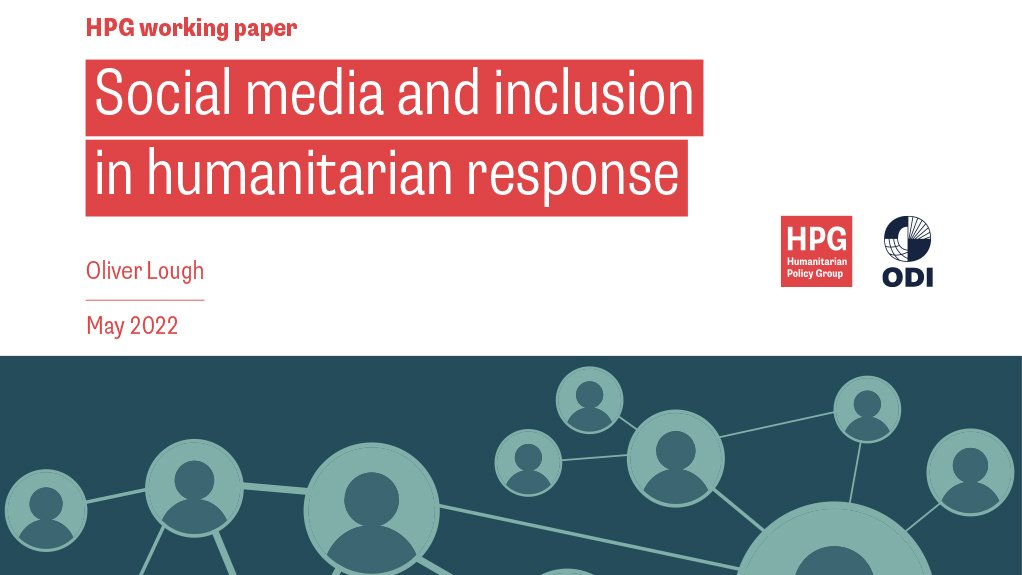- Social media and inclusion in humanitarian response0.79 MB
Social media has occupied an ambivalent space within narratives of the formal humanitarian sector over the past decade. Techno-optimist approaches have focused on its potential to deliver better outcomes for people affected by crisis: as a way to make responses more ‘data-driven’; as a powerful broadcast tool for sharing vital information; as a way to reduce distance and engage more closely with hard-to-reach groups; and as a way to democratise both aid delivery and decision-making. Meanwhile, growing realisation of social media’s role in the spread of hate speech, rumours and disinformation; questions around how user data can be exploited or misused by different actors; and a steady drip-feed of revelations about the questionable ethics of how platforms are designed and run have all driven a growing focus on the risks.
This study explores how the presence of social media in humanitarian crises intersects with efforts to make humanitarian aid more inclusive. It finds that, despite almost a decade of bold claims regarding the potential for social media to support humanitarian action, practical engagements among humanitarian actors are, for the most part, still on the starting block.
Yet, given the steady expansion of internet access and smartphone use worldwide, social media is likely to play an increasingly prominent role for affected people in current and future crises. Consequently, it is not a phenomenon humanitarian actors can continue to side-step. Given the tendency of social media platforms to mirror and amplify existing dynamics of marginalisation, a specific focus on promoting inclusion will need to be at the heart of efforts to engage more deeply as part of fundamental humanitarian commitments to impartiality and to ‘do no harm’.
The study offers four key considerations for humanitarian actors to consider in this respect as they plot their paths forward.
Report by the Overseas Development Institute
EMAIL THIS ARTICLE SAVE THIS ARTICLE ARTICLE ENQUIRY
To subscribe email subscriptions@creamermedia.co.za or click here
To advertise email advertising@creamermedia.co.za or click here











